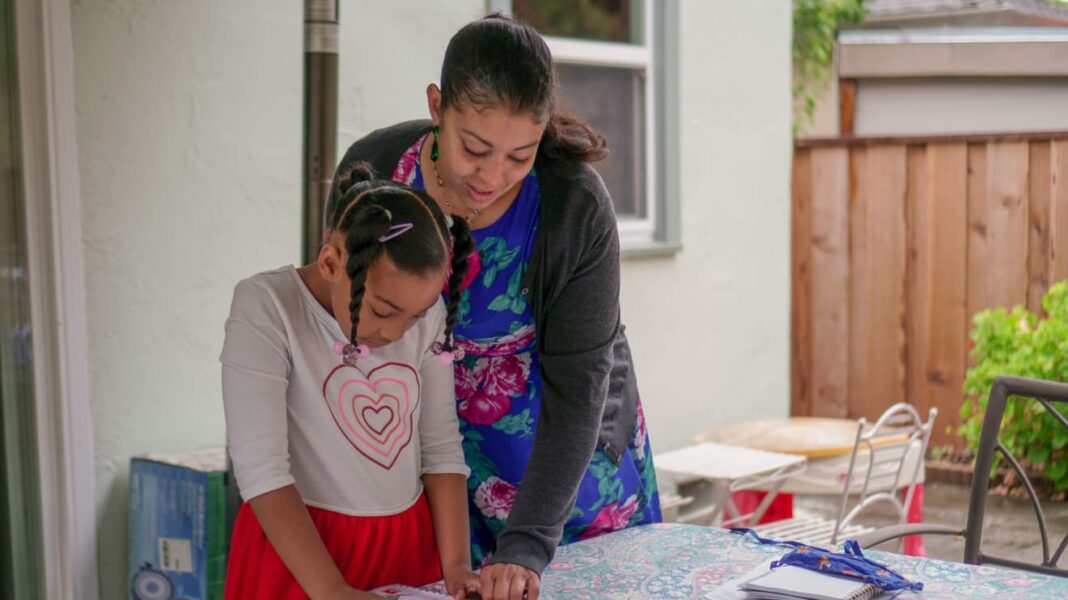Girls Get Fewer Offers If They’re Not “Domestic” — Is This Still True?

Introduction
Girls Get Fewer Offers If They’re Not “Domestic” — Is This Still True?
“Men prefer women who can cook.”
“She’s too career-focused to be marriage material.”
“If she doesn’t know household chores, no one will marry her.”
These are statements many women across the globe have heard, directly or indirectly, at some point in their lives. The idea that a girl’s worth — especially in the context of relationships and marriage — is significantly tied to her “domestic” abilities is rooted deep in patriarchal cultures. But in the age of feminism, financial independence, and shifting gender roles, is this mindset still valid?
Are girls really getting fewer offers, be it in marriage or even career, because they are not seen as domestic?
Girls Get Fewer Offers If They’re Not “Domestic” — Is This Still True?
In this blog post, we’ll explore:
- The historical foundation of “domestic femininity”
- The social pressures on women to appear marriageable
- How modern relationships view domesticity
- The career angle: is domesticity still a workplace advantage?
- Cultural differences and evolving expectations
- Real-life stories and social media perspectives
- The changing definition of compatibility
- Final thoughts on whether this mindset still holds power today
- The History of the “Domestic Woman” Ideal
Traditionally, a woman’s place was considered the home. From ancient agrarian societies to mid-20th-century suburban life, the image of the ideal woman was a caretaker, nurturer, cook, and homemaker. Her identity was often defined by how well she managed the household.
In most cultures:
- Marriage was seen as the ultimate goal for women.
- Domestic skills were viewed as essential preparation for that goal.
- Girls were often trained from childhood — in cooking, cleaning, sewing, and caring — to increase their “value” in the marriage market.
This wasn’t just cultural but economic: men were breadwinners; women were caretakers. The two roles were seen as complementary and non-negotiable.
- The Social Currency of Being “Domestic”
Even today, many women are judged by their perceived ability to manage a home — not just by potential partners, but also by in-laws, extended families, and communities. The stereotype plays out in real ways:
- Arranged marriage biodatas still highlight whether a girl can cook.
- Mothers still advise daughters: “If you don’t learn to cook, how will your husband’s family accept you?”
- Potential suitors may dismiss a woman as “too modern” if she appears uninterested in household duties.
Here, “domesticity” becomes a kind of social currency — something that can increase or decrease a woman’s value on the relationship market.
But is this the full picture?
- Are Modern Men Still Attracted to “Domestic” Women?
The answer isn’t binary.
Girls Get Fewer Offers If They’re Not “Domestic” — Is This Still True?Yes, Some Still Are.
In many traditional and semi-traditional societies, the image of a “good wife” still involves cooking, cleaning, managing in-laws, and raising kids. For men raised in households where their mothers did everything, the subconscious expectation often lingers.
For example:
- In parts of India, Pakistan, and Bangladesh, domestic skills are still considered marriage essentials.
- In rural or conservative communities worldwide, men still prefer women who “know their place in the home.”
In these contexts, girls who do not showcase domestic skills may get fewer proposals or be labeled “high-maintenance,” “too modern,” or “not family-oriented.”
Girls Get Fewer Offers If They’re Not “Domestic” — Is This Still True?But There’s Also a Strong Shift.
In urban, educated, and globally connected societies, men increasingly value:
- Emotional intelligence
- Career ambition
- Shared domestic responsibilities
- Intellectual compatibility
Many modern men are turned off by rigid gender roles and expect equality at home and work. For them, a woman’s “domestic skills” matter less than her ability to communicate, support, and grow together.
- How Career Ambition Is Often Misread
One of the biggest barriers ambitious women face is the fear of being seen as “not domestic enough.” Women who prioritize their careers are often unfairly labeled:
- Selfish
- Uncaring
- Not wife/mother material
But in reality, many ambitious women are perfectly capable of building a nurturing, balanced home — they just don’t want to bear the full burden of domestic life alone.
What society often misses is this: career ambition and domestic competence are not mutually exclusive. But when women lean into one, they are often assumed to be lacking in the other — an assumption rarely made about men.
- Does Domesticity Impact Career Opportunities?
In some ways, yes — especially when lack of domesticity is equated with lack of discipline or womanhood.
In fields like teaching, nursing, hospitality, or early childhood education — often viewed as “feminine” professions — women who don’t fit the warm, nurturing, or “home-like” persona might be overlooked for leadership roles.
However, this bias is slowly eroding in corporate spaces and entrepreneurial environments. Here, skills like leadership, problem-solving, creativity, and critical thinking hold more weight than traditional “feminine” attributes.
- What Do Women Want? Shifting Priorities in Choosing Partners
It’s important to flip the lens too. Women today are no longer willing to be evaluated solely on domestic performance. In fact, many actively seek:
- Partners who share household responsibilities
- Men who respect ambition
- Relationships based on mutual growth, not service
For such women, appearing too domestic can even backfire — they fear being seen as someone who will be stuck with unpaid labor for life.
- Real Stories: Women Speaking Up
Girls Get Fewer Offers If They’re Not “Domestic” — Is This Still True?Case 1: Ayesha, 29, Software Engineer (India)
“I was rejected in an arranged marriage proposal because I said I wouldn’t leave my job post-marriage. They told my parents I wasn’t ‘traditional’ enough — I think they meant I wasn’t ‘domestic’ enough.”
Girls Get Fewer Offers If They’re Not “Domestic” — Is This Still True?Case 2: Emily, 34, Lawyer (U.S.)
“When I was dating in my late twenties, I kept hearing, ‘You’re amazing, but I don’t know if you’re the type who’d settle down.’ Translation: I didn’t cook or play house. I found someone who doesn’t care about any of that — we order in and still have a beautiful life.”
Case 3: Fariha, 31, Homemaker by Choice (Bangladesh)
“I chose to be a homemaker because I love it. But I hate how society assumes I was forced. Not all women who enjoy domestic life are oppressed — we just want respect, like anyone else.”
- Social Media and the Image of the “Perfect Woman”
Platforms like Instagram, YouTube, and TikTok often reinforce a curated version of domesticity — women cooking, organizing, decorating, mothering — in aesthetically perfect homes. While this can be empowering for some, it also creates unrealistic expectations.
The line between “inspired” and “pressured” is blurry.
- Influencers who share “Sunday meal preps” are admired.
- Those who post about working late and skipping housework are often shamed.
Domesticity becomes performative — a checklist for social validation, not a personal choice.
- Cultural Variations and the Global Shift
In many parts of Africa, Asia, and the Middle East, domesticity is still heavily emphasized in evaluating a woman’s worth. However, across Europe, North America, and parts of Latin America, domesticity is no longer a primary factor in determining relationship compatibility.
In fact, shared responsibility models are gaining ground in relationships, parenting, and even caregiving.
Couples today want:
- Balance, not burden
- Mutual support, not gendered roles
- Partnership, not patriarchy
- Final Thoughts: Is the “Domestic Woman” Still the Gold Standard?
Yes — in some places, to some people. But increasingly, no.
The world is changing. Expectations are evolving. The one-size-fits-all model of what makes a woman “offer-worthy” no longer holds true.
What matters today is:
- Compatibility over conformity
- Emotional support over enforced servitude
- Shared values over inherited roles
Girls may still get fewer offers if they are not domestic — but only from people stuck in the past. The right offer — one based on respect, partnership, and love — doesn’t come from those who value housekeeping above humanity.
So, should girls be domestic to be accepted?
Only if they choose to be.
Because the future doesn’t belong to the domestic or the rebellious — it belongs to the free.
- The Psychology of Domestic Expectations: Why Does It Still Linger?
Even in a modernizing world, the idea that a woman should be “domestic” persists. Why?
11.1 Cognitive Biases and Conditioning
Humans are pattern-seeking beings. When something has been done for centuries — like women being homemakers — our brains normalize it. It’s called cognitive anchoring. For many, especially in traditional families, “wife” and “homemaker” are still synonyms. This deeply ingrained link can cause discomfort when they encounter women who reject domestic roles.
11.2 Gender Identity Reinforcement
Societies often define masculinity and femininity in relation to each other. For many men, being the provider is a core part of their identity. The complementary role for women, then, is being the nurturer or homemaker. When a woman steps outside that space — say, as a CEO or athlete — it can challenge not only her femininity in others’ eyes, but also the man’s sense of masculinity.
Thus, non-domestic women may be rejected not because they are flawed, but because they disrupt a comfortable — albeit outdated — identity system.
- Media and Pop Culture: The Double Standard
Popular culture is a powerful tool in shaping public consciousness. For decades, movies, television, and advertising have consistently portrayed domestic women as:
- “Wife material”
- Calm, nurturing, and patient
- Primary caretakers of both household and children
Even today, there’s a strong divide between the “career woman” and the “homely girl” in media. Often:
- The career woman is portrayed as cold, lonely, or “needing to change”
- The domestic woman is seen as pure, marriageable, and stable
Example:
- In many Bollywood or K-Drama storylines, the male lead often ends up choosing the sweet, modest, cooking-loving girl over the glamorous, independent one.
- Hollywood often showcases the independent woman as needing to “soften up” or settle down.
This subtle programming informs public opinion and keeps reinforcing that a woman’s value is still tied to how she fits within the domestic space.
However, modern media is slowly pushing back:
- Shows like Fleabag, Killing Eve, or Made in Heaven feature women breaking molds.
- Characters like Miranda Priestly (The Devil Wears Prada) or Jessica Pearson (Suits) showcase women in power without apology — though even they are not spared criticism for “not being warm enough.”
- Gen Z and Younger Millennials: Redefining Womanhood
There’s a noticeable cultural shift among younger generations, especially Gen Z, who are:
- More educated about gender roles and feminism
- More exposed to diverse lifestyles through social media
- Less tolerant of outdated gender norms
- More likely to value mental health, emotional intelligence, and partner equality over traditional traits
13.1 What Young Men Are Saying
Many younger men are now openly rejecting toxic masculinity and expressing appreciation for:
- Women who are independent
- Partnerships that don’t rely on rigid role divisions
- Equal sharing of domestic labor
In interviews and surveys, younger men have said:
“I’d rather have a woman who challenges me than someone who just cooks for me.”
“If she can’t cook, we can learn together or order food. It’s 2025.”
“Being domestic is great — if it’s a choice, not a requirement.”
This signals a powerful cultural evolution.
- Expert Perspectives: What the Studies Say
14.1 A 2021 Pew Research Study
Found that 62% of men aged 18–35 believed domestic skills were “nice to have” but not essential for a long-term partner.
14.2 Harvard Gender Equality Index (2022)
Reported that relationships where both partners shared domestic duties had:
- Higher relationship satisfaction
- Lower divorce rates
- Better emotional health for both partners
14.3 World Economic Forum Report (2023)
Found that in urban centers across 45 countries, the stereotype that “only domestic women are good wives” has dropped by 34% in the past decade among people aged 20–40.
Conclusion from data?
The stereotype still exists — but it’s dying. Slowly, steadily, and generationally.
- Intersectionality: Domesticity Expectations Vary by Class, Culture, and Religion
While urban, educated populations are moving forward, expectations around domesticity vary dramatically based on:
- Socioeconomic class
- Cultural background
- Religious norms
In Middle-Class South Asian Families:
There’s immense pressure on women to be “all-in-one” — successful in career and perfect in domestic tasks. Failure in either is seen as a red flag.
“You can work, but don’t forget who you are. You’re still a woman.” – A sentiment heard often in traditional families

In Conservative Religious Communities:
Women are still often taught that their primary role is homemaking. Rejecting domestic roles can lead to:
- Community backlash
- Family disappointment
- Marital rejection
Yet, within these communities, small pockets of change are forming — led by women who use religion to empower choice, not limit it.
- Emotional Labor and the Invisible Work of Women
Even in households where domestic chores are shared, emotional labor often falls to women:
- Remembering birthdays
- Organizing social plans
- Keeping in touch with in-laws
- Soothing tensions
- Being “the heart of the home”
This kind of invisible work is rarely acknowledged, let alone rewarded. In many relationships, women are “domestic” in ways that aren’t visible, and men still benefit — whether or not they do the dishes.
This raises the question: Is domesticity really about chores, or is it about a deeper emotional role society still expects women to perform?
- What Needs to Change?
To finally move past the outdated idea that non-domestic girls get fewer offers, three key mindsets need to shift:
- Compatibility Over Conformity
Partners should look for shared values, goals, and emotional maturity — not just whether someone cooks or folds laundry a certain way.
- Men Need to Unlearn Entitlement
Many men are raised to believe domestic work is a woman’s responsibility. Unlearning this takes effort, but it’s crucial for equality in modern relationships.
- Women Deserve Freedom of Choice
Some women love cooking and homemaking — others don’t. What matters is that they have the freedom to choose without judgment.
- How to Talk About Domesticity in Dating or Marriage
Whether you’re in a relationship, dating, or discussing marriage, it’s okay to talk about household roles early on. Questions to explore:
- What are your expectations around cooking and housework?
- Do you believe in dividing domestic work equally?
- Would you be okay with hiring domestic help?
- Are you willing to learn new skills together?
These conversations are not unromantic — they’re practical and essential for long-term harmony.
- Redefining What Makes a Woman “Offer-Worthy”
Let’s reclaim the narrative.
A woman is not valuable because she can cook perfectly or fold fitted sheets. She is valuable because she is:
- Honest
- Loving
- Resilient
- Smart
- Emotionally aware
- Capable of partnership
Domesticity is a trait — not a value system.
Whether she’s a coder, a painter, a pilot, or a stay-at-home mom, a woman’s worth lies in her entire being, not her utility.
- Final Thoughts: Are Girls Still Judged for Not Being “Domestic”?
Yes, sometimes — but less and less with each passing year.
- In some communities, a lack of domesticity still leads to fewer marriage proposals.
- In certain cultures, it affects a woman’s image as “wife material.”
- In conservative circles, she may be seen as a threat to tradition.
But…
- In progressive relationships, domesticity is shared.
- In loving partnerships, value is not based on chores.
- In the future we’re building, freedom of choice will define love — not gender roles.
So, is it still true that girls get fewer offers if they’re not domestic?
Only from people who don’t deserve them.
- Practical Advice for Women Navigating Domestic Expectations
If you’re a woman feeling pressured to be “domestic” to get offers—whether in dating, marriage, or even social acceptance—you’re not alone. Here are some practical ways to handle these pressures while staying true to yourself:
21.1 Define Your Own Values
Take time to reflect on what domesticity means to you. Does it include cooking? Tidying? Emotional support? Or do you prefer outsourcing chores, focusing on your career, or sharing tasks equally? Your values should guide your choices—not outdated societal norms.
21.2 Communicate Openly With Partners
Honest conversations about household roles and expectations early on help prevent misunderstandings. If someone dismisses you for not being “domestic enough,” it’s a red flag that your values don’t align. You deserve a partner who respects your definition of partnership.
21.3 Build Skills You Want, Not Skills You Feel Forced To
If you enjoy cooking or decorating, pursue those skills because they bring you joy—not because you feel you have to impress others. Similarly, if you dislike domestic tasks, find creative ways to minimize or share them without guilt.
21.4 Seek Communities That Support Your Choices
Whether online or offline, find like-minded women and men who celebrate diverse life paths. These communities can provide encouragement and normalize non-traditional roles.
- How Society Can Support Healthier Perspectives
Moving beyond old stereotypes requires collective effort. Here’s how society can play its part:
22.1 Education That Challenges Gender Norms
Schools and families should teach children that chores and emotional labor aren’t tied to gender. Boys and girls both need to learn domestic skills and emotional intelligence to thrive in modern partnerships.
22.2 Media Representation Matters
Showcasing diverse women—career-driven, nurturing, domestic, or any mix—helps normalize choices beyond stereotypes. Celebrating men who actively share domestic duties can also redefine masculinity.
22.3 Workplace Policies for Equality
Supporting both men and women with parental leave, flexible work hours, and child care encourages shared responsibility at home. This reduces the burden on women to be the “default” domestic caretaker.
22.4 Encourage Open Dialogues
Society benefits when conversations about partnership, domesticity, and gender roles happen openly and without judgment. Workshops, podcasts, and social campaigns can dismantle harmful myths.
- The Future: Domesticity as a Choice, Not a Requirement
Imagine a world where no girl is told she must be domestic to be loved or accepted. Where every individual—regardless of gender—decides how they want to live, work, and contribute at home.
In this future:
- Partnerships are built on mutual respect and shared values, not checklists.
- Domestic skills are learned and shared as life skills, not gendered duties.
- Women can pursue careers or homemaking freely, without judgment.
- Men can express emotions and share home responsibilities without stigma.
This vision isn’t just hopeful; it’s already emerging in many places around the world. And each step toward it makes society freer, kinder, and more just.

Final Reflection
The idea that girls get fewer offers if they’re not “domestic” still lingers in pockets of society, but its hold is weakening. True value lies not in how well someone cooks or cleans, but in their humanity, integrity, and the love they bring to relationships.
For anyone navigating these pressures, remember: Your worth is not dictated by outdated expectations. It’s defined by your unique self.
























